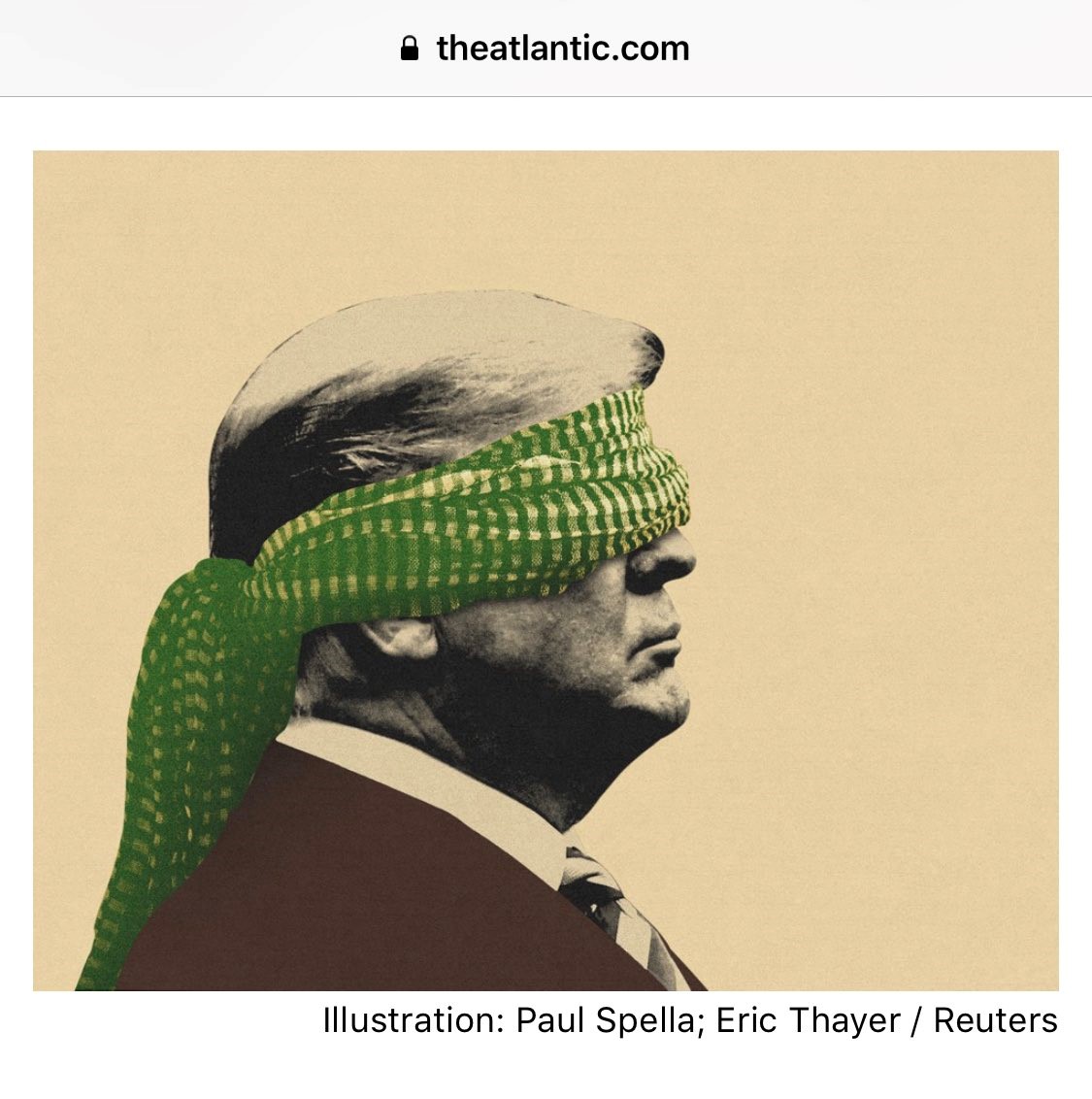
Senior military personnel, civilian policy makers, and the media often team up to nudge and cajole presidents into adjusting U.S. foreign policy. Occasionally these concerted efforts by the self-styled “beltway elite” result in the desired change, so this remains a go-to method for wannabe influencers peering into the halls of power through the windows.
In “Top Military Officers Unload on Trump,” an online article set for November’s print edition of The Atlantic, Mark Bowden gives a clinic in how not to be effective with this technique in the age of Trump. Bowden’s analysis flows from interviews with “officers up and down the ranks, as well as several present and former civilian Pentagon employees,” but his article is fashioned as a more pointed rebuke of President Trump coming from a narrower group of retired flag officers.
It’s a group he collectively refers to as “the generals,” all but one having retired before Trump’s inauguration. His article opens by paying homage to the deep well of “knowledge and experience” these generals have amassed coming of age as hundreds of thousands of U.S. troops have experienced combat across nearly 150 countries.
This deep well of knowledge and experience is indisputable, but belies the fact that thousands of lives have been lost, and tens of thousands of families forever altered by that same warfighting experience that burnishes the resumes of these anonymous retirees. This painful burden has been carried by myriad American families across the country, primarily outside the beltway beyond earshot from the elite chattering class now criticizing the president.
The degree to which the president taps into that pain may explain why he remains so popular among his base, and the way he reflects it in his foreign policy pronouncements is part of what causes Bowden and his sources so much consternation.
An Incomplete Picture of the President’s Style
Bowden’s article provides a detailed critique of President Trump’s leadership style from the view of “the generals,” only one of whom actually served under the president, and it is unclear from the article if that source had ever worked directly for the president. It isn’t a pretty picture, and Bowden uses a broad brush, complaining the president disdains expertise, trusts only his own instincts, resists a coherent strategy, is reflexively contrarian, and suffers from a simplistic and antiquated notion of soldiering.
There are no surprises in this list for anyone who has paid attention to the media narrative of the deficiencies with President Trump’s leadership style, but examined through the lens of his supporters, the list reads as an accounting of the features, not the bugs, in his style. Surely “the generals” bristle at the brash and occasionally undisciplined president, but there has been no change in his approach—he’s who he campaigned to be.
The criticism that the president “disdains expertise” is met with the retort, “Experts according to who?” The track record of so-called experts getting U.S. foreign policy and Trump’s electoral prospects wrong does not bolster the “expert” side of the ledger. This is probably most pronounced regarding the Middle East, where military historians and the general public are generally in sync since 9/11 in agreeing that our actions in the region have been ineffective.
Whether it’s the failure to win decisively in Afghanistan, the distraction of invading Iraq under the pretext of weapons of mass destruction, or the wide berth given to Taliban and Islamic State forces during our staged withdrawal from the region, allowing them to wait us out and regroup, the American public is rightfully skeptical of “the experts” by now.
The criticism that Trump “trusts only his own instincts” echoes his supporters’ accolades of “saying what we’re feeling,” and builds on the previous point of the so-called experts not being as reliable as they should be. The criticism that he’s “reflexively contrarian” is met with a simple, and damning “How’s the status quo working out for you so far?”
The criticism that Trump has a “simplistic notion of soldiering” seems to ignore the reality that from the very first garrisons that were assembled, a soldier’s purpose was to “kill the enemy and break their toys.” While the soft leadership skills recounted in the article have their place, far more Americans relate to the image of a screaming drill sergeant preparing his troops for the horrors of war than to a new recruit raising his hand to request a time-out from that screaming.
The point isn’t to argue that Trump’s supporters are right and “the generals” are wrong, but to emphasize that there are far more important issues in play than the president’s style. Are there leadership lessons buried in this article? Yes. Are there legitimate concerns with how the president’s approach has complicated our foreign policy? Yes. But the article proceeds to fall into partisan advocacy, missing a huge opportunity to credibly advance the dialogue.
‘The Generals’ Cover for a Partisan Narrative
Whether it’s waving off the idea of the “deep state,” incredibly claiming the world of national security doesn’t contain much evidence of leftist politics, or whitewashing the rise of ISIS as simply being “inspired” by the Iraq War (and not the result of the vacuum created by President Obama), the article quickly turns into a partisan hit piece covering itself with a fig leaf of credibility by imputing the viewpoints of “the generals” to its overall claims.
Ironically, the article attempts to claim that the reason for maintaining “the most expensive and professional military in the world” is to avoid wars, yet it avoids acknowledging the discomfort middle America, and increasingly President Trump, has with the fact that we’ve historically deployed our military to all corners of the planet, starved it for resources when deployed, and overworked it. Trump supporters know this. That’s why they cheer reflexively when he disengages from a foreign entanglement of dubious value, even when there may be good reason to tap the brakes.
Probably the most egregious element of the article’s partisan slant is the inflammatory illustration midway though. This “artistic” portrayal of the president with a green and white keffiyeh—the official colors of Hamas—wrapped around his eyes evokes brutal ISIS beheadings. It is unreferenced in the article and appears to be pure propaganda so inflammatory that it should be retracted with an apology.

Ultimately, the article wraps up with a stoic warning, attributed to a nameless retired general, saying “the hard part is that he may be president for another five years.” If the president is re-elected, articles like this will have contributed: whether by highlighting the left’s continued inability to understand what drives the president and his supporters, or by once again poking their fingers into his supporters’ chests, derisively reminding them “orange man bad,” thereby ensuring they show up at the polls again to support him regardless of his flaws.









